What impact will president-elect Donald Trump have on the Affordable Care Act, health insurance, and healthcare costs? Inquiring minds want to know.
“Trump healthcare.” It’s a buzzword that can quickly generate a water-cooler debate at the office or turn a holiday gathering into a heated discussion. It has ignited a firestorm of news stories, opinion pieces, and blogosphere speculation about the future of healthcare. How will proposed changes to healthcare impact you, your employees, your patients, or your population?

Healthcare Reform – 7 Proposed Changes
Here are seven changes to healthcare that Trump says he wants Congress to approve:
- Repeal parts of Obamacare.
- Allow health plans to provide health insurance in any state.
- Make health insurance premiums tax deductible for individuals.
- Make contributions to health savings accounts tax free, cumulative, and transferrable to a family member.
- Require price transparency from all healthcare providers, organizations, clinics, hospitals, and doctors.
- Block-grant Medicaid to states and give them full control to administer Medicaid.
- Change Food and Drug Administration regulations to make it easier for drug companies to sell, and enable consumers to get safe, reliable, and cheaper medications.
Trump’s proposed policy changes may have an impact on reducing the cost of healthcare for individuals and increasing accessibility to quality care. But if we’re really looking for solutions to promote health, prevent disease, provide better care, and reduce healthcare costs, these policy changes still don’t get to the root of the problem.
The Cost of Chronic Disease
We need to do a better job at preventing chronic disease. In the United States, an estimated 86 percent of all healthcare costs ($3.207 trillion annually) are directly linked to chronic disease. About half of all adults are living with one or more chronic conditions. Heart disease, stroke, cancer, type 2 diabetes, and obesity, are among the most common, costly, and preventable conditions.
All too often people don’t get preventive exams. They head to the ER when there’s a problem instead of being treated by a less costly primary care physician. They prefer a pill instead of combining medicine with lifestyle changes in order to treat a condition. Sound familiar?
Want to Cut Healthcare Costs? Make Healthy Lifestyle Choices Part of Healthcare Reform
No matter how the proposed healthcare reform changes play out, here’s something every healthcare provider, insurance company, and individual needs to understand: Healthy lifestyle choices can make healthcare great again.
If you want to help yourself, your family, your patients, your employees, or your population, then encourage healthy behaviors. Here are some easy ways to get started:
- Eliminate tobacco use and substance abuse.
- Improve diet by eating more plant-based foods.
- Increase physical activity to at least 30 minutes a day.
- Get 7 to 8 hours of sleep per day.
- Reduce stress.
- Improve relationships and environment at home and work.
- Get preventive exams and medical care.
Be Willing to Change to Improve Health
There will always be a population of people with existing conditions, a genetic disposition for disease, an emergency, or a situation where frequent healthcare services are needed. That’s one reason health insurance is important. However, getting more people to adopt healthy behaviors will have the greatest impact on healthcare costs.
The Affordable Care Act and Trump’s healthcare reform proposals are both examples that illustrate a need to improve the health of all Americans. But instead of focusing on policy changes, maybe it’s time to focus on providing individuals with tools to take responsibility for their own health and create a cultural change that makes healthy behaviors contagious.
And if someone doesn’t know where to start, that’s OK. We just need more people willing to say, “I’m ready,” and be willing to make changes to improve their health. Then we can show them the way.







